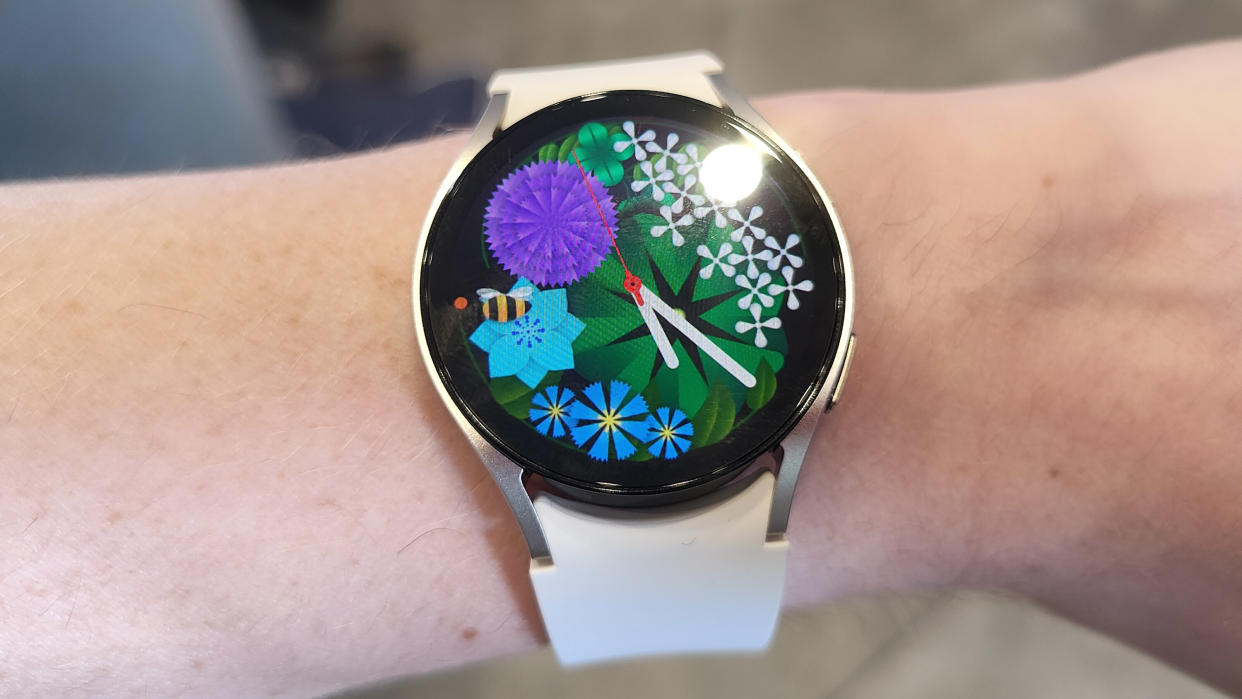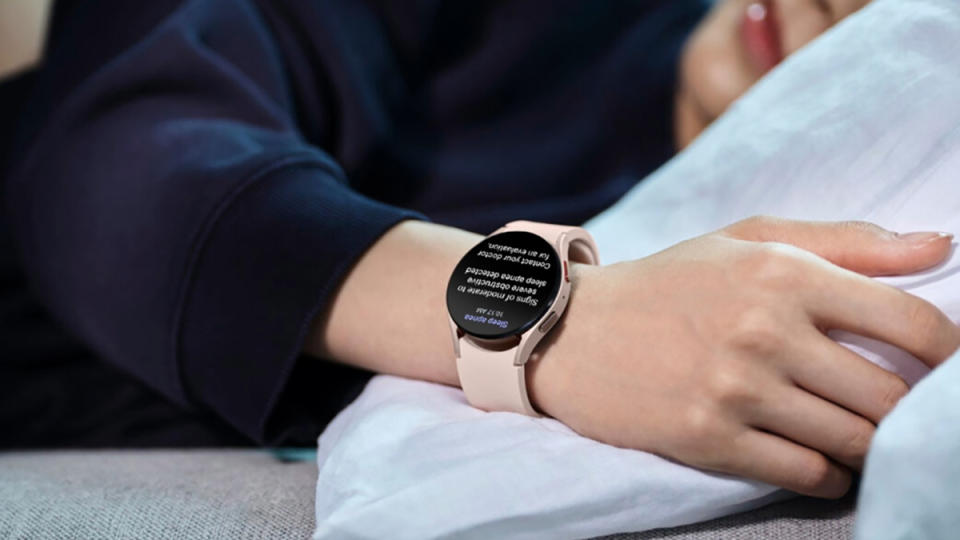The Samsung Galaxy Watch 7 is tipped to get a major health upgrade

It's now almost certain that the Samsung Galaxy Watch 7 will come with sleep apnea detection built-in, after Samsung's sensor tech was officially authorized for this purpose by the Food and Drug Administration (FDA) in the US.
As Samsung points out in a press release (via 9to5Google), it is the first company to get such authorization for sleep apnea in the United States. It means that the FDA thinks the detection algorithms are reliable enough that Samsung's devices can be marketed as being able to spot the condition.
In other words, we can expect the Galaxy Watch 7 to be advertised as having sleep apnea detection capabilities, when it arrives later this year. It doesn't mean the detection will be infallible, or that it can replace a diagnosis from a trained clinician, as Samsung makes clear in its announcement.
The feature will be available in the third quarter of this year, Samsung says, so we're assuming that means the Galaxy Watch 7 (due around July or August). There's no word on whether it'll come to older watches in the US, though Samsung does mention the "Galaxy Watch series" in its post, and it is already enabled on current models in South Korea.
Sleep tight

Obstructive sleep apnea (OSA) is a condition where the airways get blocked during sleep. It often goes unnoticed and untreated, but can cause people to temporarily stop breathing – reducing oxygen supply to the body and reducing sleep quality.
OSA is also associated with an increased risk of cardiovascular diseases including hypertension, coronary artery disease, heart failure, cardiac arrhythmia, and stroke. Around 25% of men and 10% of women in the US are thought to experience OSA – and Samsung is hoping to get more cases spotted.
As we've previously reported, this has been coming for a while – as we've said, Samsung has already been given clearance to enable the feature on its smartwatches in South Korea. Two nights of blood oxygen readings are required for the sleep apnea detection to work, and it's suitable for people over the age of 22.
It's a key feature that other manufacturers are very interested in. It's already available on Withings products, and Apple is busy trying to get it added to the Apple Watch – although its ongoing patent dispute over blood oxygen monitoring, which is key to sleep apnea detection, may mean that we don't see it for a while.
